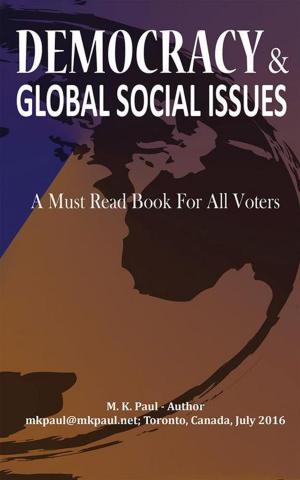| Author: | Alistair Bryson | ISBN: | 9781524631161 |
| Publisher: | AuthorHouse UK | Publication: | June 22, 2016 |
| Imprint: | AuthorHouse UK | Language: | English |
| Author: | Alistair Bryson |
| ISBN: | 9781524631161 |
| Publisher: | AuthorHouse UK |
| Publication: | June 22, 2016 |
| Imprint: | AuthorHouse UK |
| Language: | English |
Is economics a science as many of its exponents claim? This author completely rejects such claims and locates much, if not all, of the theories in current economics to straightforward mysticism. Using this approach, and the observations of many of the towering historical figures from within the discipline, he explores the avenues and results such mysticism has achieved throughout the ages. But if economics is not a science, it remains much more than a topic for after-dinner conversation in the clubs of informed intellectuals. The application of informed common-sense - mainly, the informed common-sense of John Maynard Keynes - previously led society to the achievement of undreamed-of societal affluence. It is contended that it is primarily the contemporary neglect of this gentleman`s perspectives, and the re-newed substitution of these by centuries-old theories, which has led us to the contemporary economic chaos generated by the figures described as free-market champions. The book therefore ends with a plea for us to return to the Keynesian perspectives whose application proved to be so beneficial to society at large. The book is in no way intended as a text-book on economics; it is, rather, a story woven from the economic discipline.
Is economics a science as many of its exponents claim? This author completely rejects such claims and locates much, if not all, of the theories in current economics to straightforward mysticism. Using this approach, and the observations of many of the towering historical figures from within the discipline, he explores the avenues and results such mysticism has achieved throughout the ages. But if economics is not a science, it remains much more than a topic for after-dinner conversation in the clubs of informed intellectuals. The application of informed common-sense - mainly, the informed common-sense of John Maynard Keynes - previously led society to the achievement of undreamed-of societal affluence. It is contended that it is primarily the contemporary neglect of this gentleman`s perspectives, and the re-newed substitution of these by centuries-old theories, which has led us to the contemporary economic chaos generated by the figures described as free-market champions. The book therefore ends with a plea for us to return to the Keynesian perspectives whose application proved to be so beneficial to society at large. The book is in no way intended as a text-book on economics; it is, rather, a story woven from the economic discipline.















